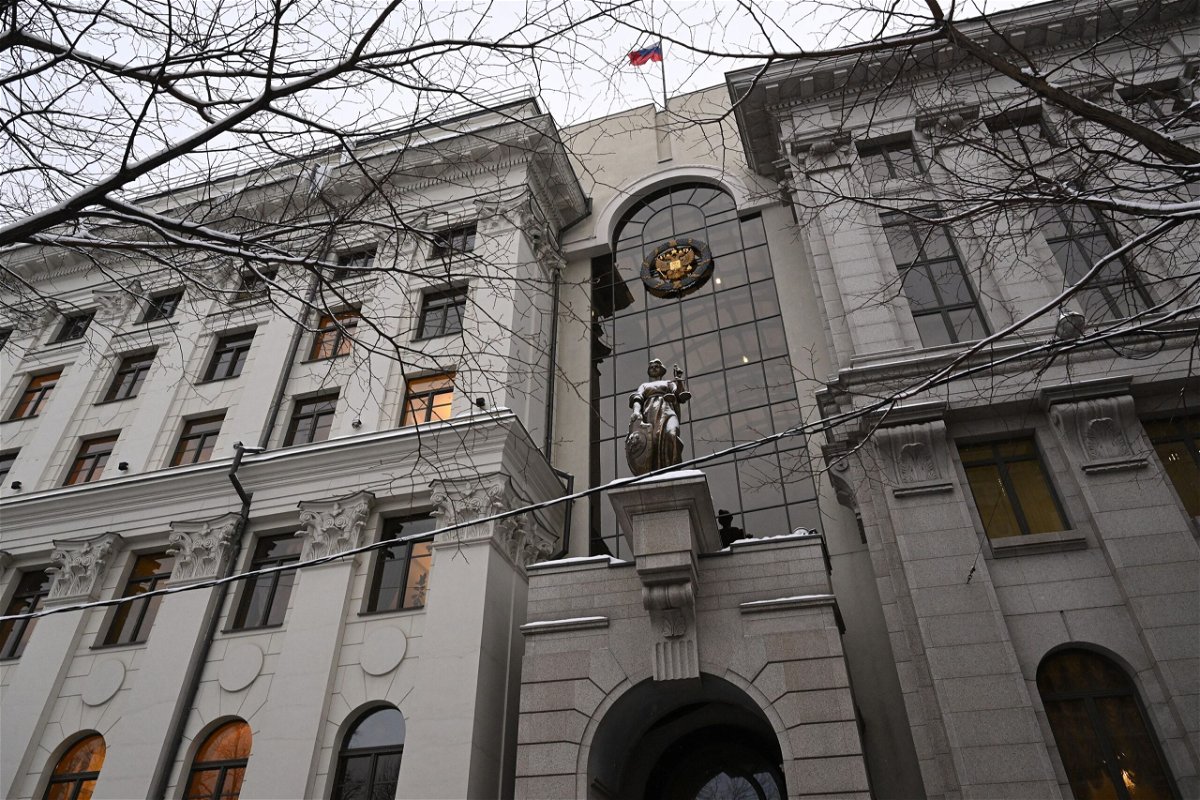Russia’s top court bans ‘international LGBTQ movement’

By Anna Chernova and Lindsay Isaac, CNN
(CNN) — Russia’s Supreme Court has declared what it called the “international LGBTQ movement” an extremist organization and banned all activities associated with it in the country.
The landmark ruling on Thursday is set to further erode the rights of Russia’s LGBTQ community, who have faced an intensifying crackdown in recent years, as President Vladimir Putin seeks to shore up his image as defender of traditional moral values against the liberal West.
Russia’s highest court found in favour of a motion filed by the Ministry of Justice which claimed the LGBTQ community risked “inciting social and religious discord”, in violation of Russia’s Law on Countering Extremism, according to a statement from the UN condemning the decision.
While there is no legally recognized LGBTQ community in Russia under the country’s discriminatory anti-gay law, Thursday’s ruling states: “The claims are to be satisfied: to recognize the international LGBT movement as an extremist organization and to prohibit its activities in Russia,” according to state news agency RIA Novosti.
The four-hour hearing was held behind closed doors with only the Justice Ministry present for the proceedings and materials classified. RIA Novosti reports the decision is effective immediately.
Two weeks ago, the Justice Ministry said on its official website it had initiated legal proceedings to designate the ‘international LGBT social movement’ as an extremist organization and seek its prohibition in Russia.
The ministry did not elaborate on what it meant by the “movement.”
In the statement Thursday, the UN said it “deplores” the ruling and warned that it could leave “members, employees and people engaging with such organisations” at risk of criminal charges and imprisonment.
Under Russian legislation, an organisation designated as extremist faces immediate dissolution, and its leaders face charges of up to 10 years in prison, according to the UN Human Rights Chief.
“This decision exposes human rights defenders and anyone standing up for the human rights of LGBT people to being labelled as ’extremist’ – a term that has serious social and criminal ramifications in Russia,” the UN High Commissioner for Human Rights Volker Türk said.
Homosexuality was decriminalized in Russia in 1993, but homophobia and discrimination is still rife.
In recent years, the Kremlin has introduced or expanded on a raft of anti-LGBTQ laws, a conservative shift that has intensified following the invasion of Ukraine. Presidential elections are due next year, with Putin widely expected to extend his rule.
In July this year, Russia passed a law banning doctors from conducting gender reassignment surgeries, except in cases related to treating congenital physiological anomalies, in children.
In December 2022, Putin signed into law a bill that expanded a ban on so-called LGBTQ “propaganda” in Russia, making it illegal for anyone to promote same-sex relationships or suggest that non-heterosexual orientations are “normal.”
The package of amendments signed by Putin included heavier penalties for anyone promoting “non-traditional sexual relations and/or preferences,” as well as gender transition.
The new law was an extension of legislation introduced in 2013, which banned the dissemination of LGBTQ-related information to minors.
The-CNN-Wire
™ & © 2023 Cable News Network, Inc., a Warner Bros. Discovery Company. All rights reserved.